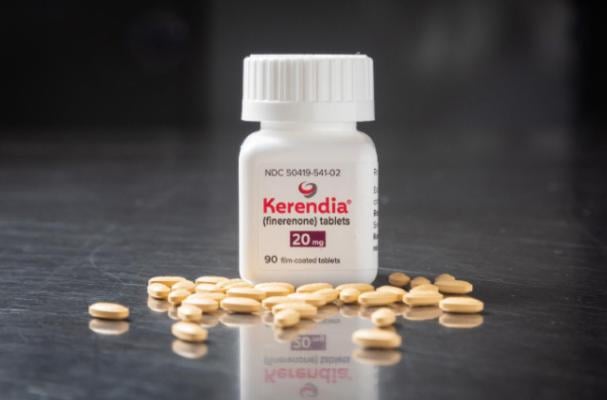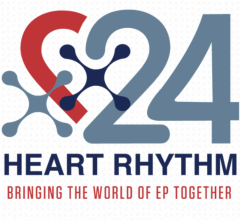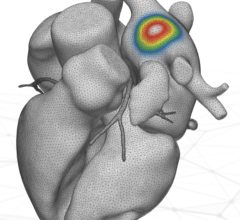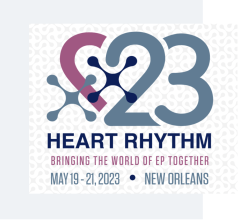
May 17, 2024 — The study design and baseline characteristics of FINE-HEART, a new prespecified, exploratory pooled analysis of three Phase III trials with finerenone1, were presented today as a Late-Breaking Science Session at Heart Failure 2024, a scientific congress of the European Society of Cardiology (ESC) in Lisbon.
Finerenone is marketed as Kerendia and approved for the treatment of adults with chronic kidney disease (CKD) associated with type 2 diabetes (T2D) in more than 70 countries worldwide, including the United States. The data presented here may discuss a use outside of the approved indication.
FINE-HEART is designed to investigate the effects of finerenone on cardio-kidney outcomes based on data from over 19,000 patients with varying combinations of heart failure (HF), CKD and T2D across three Phase III finerenone studies – FIDELIO-DKD, FIGARO-DKD, and FINEARTS-HF.1
Over 92% of patients included in the analysis had overlapping cardio-kidney-metabolic (CKM) conditions—78% had two (HF and CKD, HF and T2D or CKD and T2D), while 14.7% had all three. 37% of patients had a history of HF, 81% had a history of T2D, and 89% had a history of CKD.1
The analysis showed that patients across the three studies were at high risk for CKD progression with either reduced estimated glomerular filtration rate (eGFR) [30% with eGFR <45, and 26% with eGFR 45 to 60 mL/min/1.73m2] and/or albuminuria [31% with “A2” urine albumin-to-creatinine ratio (UACR) 30-300mg/g, and 49% with “A3” UACR>300mg/g].1
“The multimorbid patient profile of the FINE-HEART study is reflective of the patients seen today in real-world clinical settings, highlighting the critical need for data that investigate the impact of finerenone on cardio-kidney outcomes,” said Dr. Robert Perkins MPH, FACP, Vice President, U.S. Medical Affairs/Cardiovascular-Renal at Bayer. “The 19,000+ individuals investigated under the umbrella of FINE-HEART represent one of the most comprehensive studies of individuals living with an increasingly common and complex set of conditions, and I am optimistic that the FINE-HEART program may help provide key insights for clinicians managing ever-more complex patients.”
The prespecified, exploratory pooled analysis FINE-HEART includes data from the FIDELITY program, which encompasses the FIDELIO-DKD and FIGARO-DKD trials, having randomized more than 13,000 patients with CKD associated with T2D and albuminuria (UACR≥30mg/g) on maximally tolerated doses of renin-angiotensin system inhibitors across 48 countries.2 It also includes data from the FINEARTS-HF trial, with more than 6,000 patients with HF with left ventricular ejection fraction (LVEF) ≥40%, elevated natriuretic peptides, and evidence of structural heart disease across 37 countries.1
About Kerendia (finerenone)3
Kerendia is a non-steroidal mineralocorticoid receptor antagonist (MRA) and was approved by the U.S. Food and Drug Administration (FDA) in July 2021 to reduce the risk of sustained eGFR decline, end-stage kidney disease, cardiovascular death, non-fatal myocardial infarction, and hospitalization for heart failure in adult patients with chronic kidney disease (CKD) associated with type 2 diabetes (T2D).
Kerendia was studied in the largest CKD clinical trial program, FIDELIO-DKD (Finerenone in reducing kiDnEy faiLure and dIsease prOgression in Diabetic Kidney Disease) and FIGARO-DKD (Finerenone in reducinG cArdiovascular moRtality and mOrbidity in Diabetic Kidney Disease), across a broad range of CKD severity in adults with CKD associated with T2D. In the Kerendia Phase III program for CKD associated with T2D with over 13,000 people, FIDELIO-DKD and FIGARO-DKD showed Kerendia reduced the risk of CKD and cardiovascular events.4 Based on data from the clinical trial program, Kerendia has been recommended for adults with CKD associated with T2D in several major treatment guidelines, including those from the American Diabetes Association (ADA), the American Association of Clinical Endocrinology , and the Kidney Disease: Improving Global Outcomes ® (KDIGO) Foundation, as well as the ADA/KDIGO Consensus Statement.4
IMPORTANT SAFETY INFORMATION
CONTRAINDICATIONS:
- Concomitant use with strong CYP3A4 inhibitors
- Patients with adrenal insufficiency
WARNINGS AND PRECAUTIONS:
Hyperkalemia: KERENDIA can cause hyperkalemia. The risk for developing hyperkalemia increases with decreasing kidney function and is greater in patients with higher baseline potassium levels or other risk factors for hyperkalemia. Measure serum potassium and eGFR in all patients before initiation of treatment with KERENDIA and dose accordingly. Do not initiate KERENDIA if serum potassium is >5.0 mEq/L.
Measure serum potassium periodically during treatment with KERENDIA and adjust dose accordingly. More frequent monitoring may be necessary for patients at risk for hyperkalemia, including those on concomitant medications that impair potassium excretion or increase serum potassium.
MOST COMMON ADVERSE REACTIONS:
From the pooled data of 2 placebo-controlled studies, the adverse reactions reported in ≥1% of patients on KERENDIA and more frequently than placebo were hyperkalemia (14% versus 6.9%), hypotension (4.6% versus 3.9%), and hyponatremia (1.3% versus 0.7%).
DRUG INTERACTIONS:
Strong CYP3A4 Inhibitors: Concomitant use of KERENDIA with strong CYP3A4 inhibitors is contraindicated. Avoid concomitant intake of grapefruit or grapefruit juice.
Moderate and Weak CYP3A4 Inhibitors: Monitor serum potassium during drug initiation or dosage adjustment of either KERENDIA or the moderate or weak CYP3A4 inhibitor and adjust KERENDIA dosage as appropriate.
Strong and Moderate CYP3A4 Inducers: Avoid concomitant use of KERENDIA with strong or moderate CYP3A4 inducers.
USE IN SPECIFIC POPULATIONS:
- Lactation: Avoid breastfeeding during treatment with KERENDIA and for 1 day after treatment.
- Hepatic Impairment: Avoid use of KERENDIA in patients with severe hepatic impairment (Child Pugh C) and consider additional serum potassium monitoring with moderate hepatic impairment (Child Pugh B).
Please click here for full Prescribing Information for KERENDIA.
About Chronic Kidney Disease in Type 2 Diabetes
Patients with chronic kidney disease (CKD) associated with type 2 diabetes (T2D) are three times more likely to die from a CV-related cause than those with T2D alone.5 CKD is a serious and progressive condition that is generally underrecognized.6 CKD is a frequent complication arising from T2D and is also an independent risk factor of CV disease.7,8,9 Approximately 40% of all patients with T2D develop CKD. Despite guideline-directed therapies, patients with CKD associated with T2D remain at high risk of CKD progression and CV events.6,7,9,10 T2D is the leading cause of end-stage kidney disease, which requires dialysis or a kidney transplant to stay alive.10,11,12
About Heart Failure
Heart failure (HF) is a highly prevalent chronic condition, affecting approximately 6.5 million adults in the U.S.13 HF is characterized by the progressive decline in the heart’s ability to pump enough blood to meet the body’s needs for blood and oxygen.13 Symptoms can include shortness of breath, fatigue, chest discomfort and swelling in the lower body. Risk factors are hypertension, diabetes mellitus, smoking, a past myocardial infarction and coronary artery disease.13,14
Patients with diabetes have more than two times the risk of developing HF than their healthier peers.15 Further, cardiovascular outcomes, hospitalization and prognosis are worse for patients with diabetes mellitus than those without. While 10% to 15% of the general population has diabetes, a study suggests that 44% of patients hospitalized for HF have diabetes.12
About Bayer’s Commitment in Cardiovascular and Kidney Diseases
A leader in the cardiovascular (CV) space, Bayer upholds a long-standing commitment to delivering science for a better life by advancing research and treatment options. Bayer’s cardiorenal franchise, which began with the discovery and development of a number of vital therapies, now includes several products and compounds in various stages of preclinical and clinical development with the potential to impact the way that CV and kidney diseases are treated.
Bayer is investigating potential treatment approaches for areas of high unmet medical need. Currently, Bayer is investigating nine CVR-related projects in different stages of development, including heart failure (HF) and non-diabetic chronic kidney disease (CKD).4
Bayer is actively identifying resources and programs aimed at better understanding the real-world management of CKD, expanding screening and early care management for CKD, aligning with and supporting groups and institutions that share the common goals of improving health outcomes, promoting health literacy and education, and promoting research and initiatives that represent the diversity required to address the needs of all patients.
For more information: www.bayer.com


 July 30, 2024
July 30, 2024 









